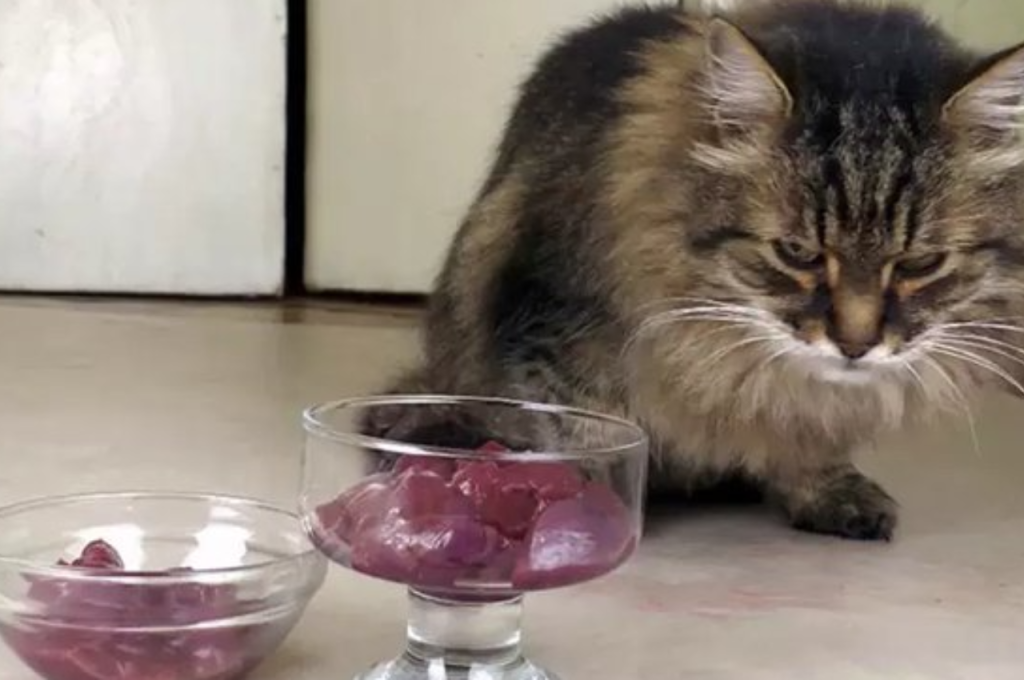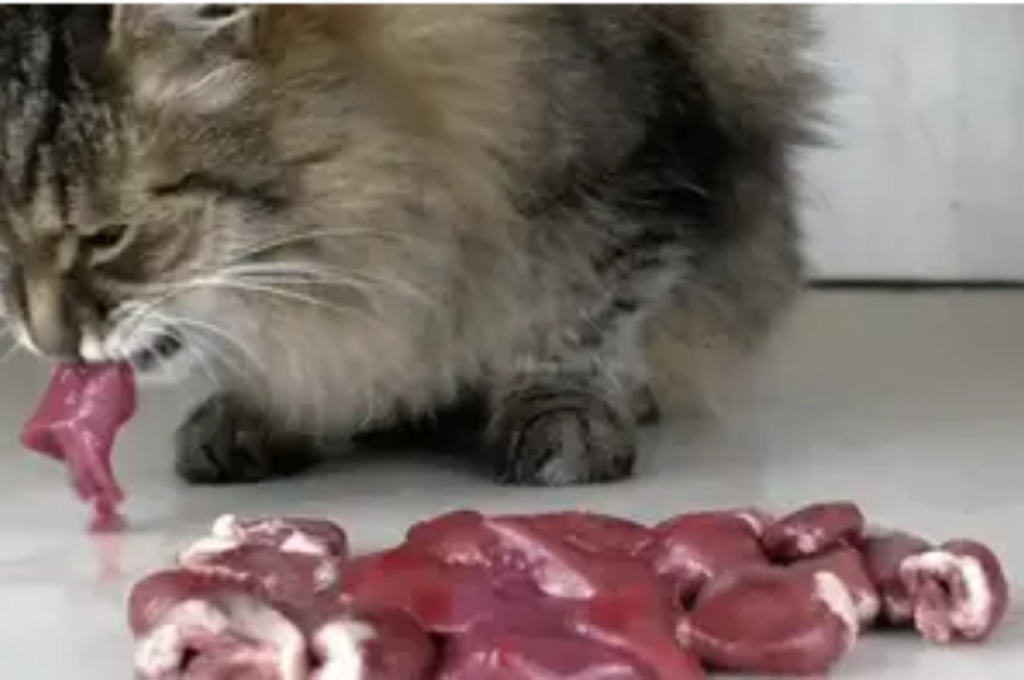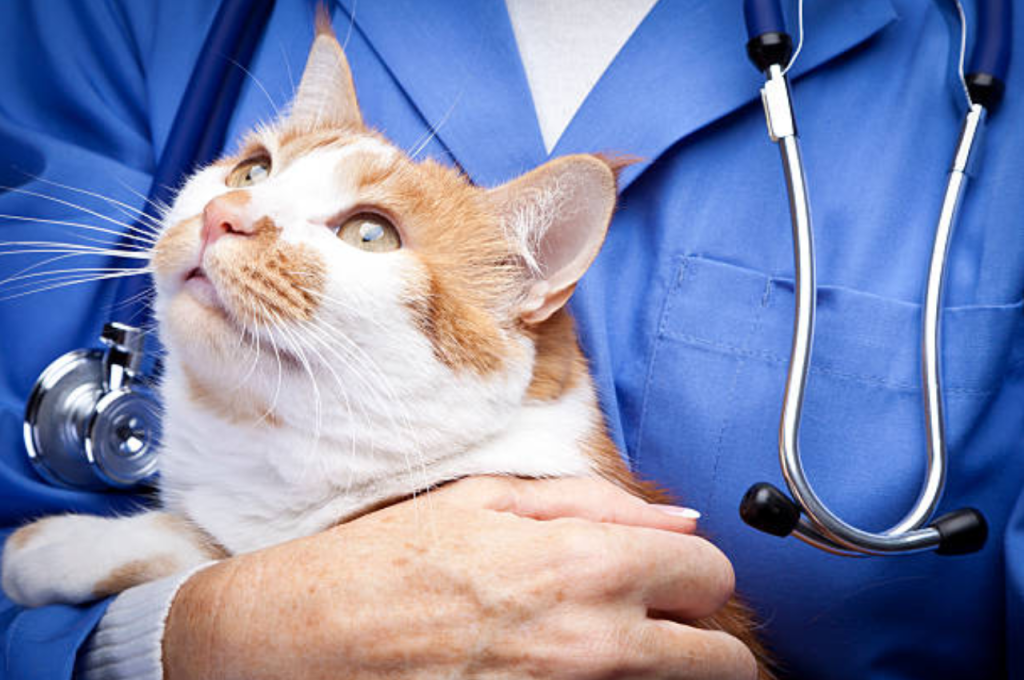Yes, the liver is good for cats as it is a nutrient-rich source of protein and vitamins. Including the liver in your cat’s diet can support their overall health and provide essential nutrients.
Cats are obligate carnivores, which means their diet should primarily consist of animal-based proteins. The liver is a highly digestible protein source for cats and also contains essential vitamins such as Vitamin A, and B vitamins, and minerals like iron and copper, which are important for their well-being.
However, it should be fed in moderation to avoid an imbalance of nutrients. As with any addition to your cat’s diet, it’s important to consult with your veterinarian to ensure it is appropriate for your individual cat’s dietary needs.
Nutritional Benefits of Liver for Cats
The liver is often considered a superfood for cats due to its dense nutrient profile and numerous health benefits. Whether it’s chicken, beef, or other varieties, liver packs a powerful punch of essential vitamins, minerals, and protein that contribute to your cat’s overall well-being. Here are some of the key nutritional benefits of liver for cats:

High in Vitamin A
The liver is packed with Vitamin A, crucial for a cat’s vision, immune system, and reproduction. By providing the essential nutrients and proteins necessary for their well-being, a meat-centric diet supports optimal body composition, metabolic function, and energy levels in felines.
Rich in Protein and Iron
The Liver is rich in both protein and iron, essential nutrients that play pivotal roles in enhancing muscle strength and metabolic function in cats. By incorporating the liver into their diet, felines can benefit from a well-rounded source of nutrition that supports their overall health and vitality. Ensuring they thrive both physically and metabolically.
Potential Risks of Feeding Liver to Cats
The liver is high in vitamin A which can be toxic to cats in large amounts. Feeding the liver occasionally is fine, but excess consumption may lead to vitamin A toxicity. It is important to moderate liver intake and consult with a vet for a balanced diet for your feline friend.
Vitamin A Toxicity
Feeding liver to cats can come with potential risks, such as vitamin A toxicity. Although the liver is a highly nutritious food for cats, it is rich in vitamin A, and excessive consumption of this vitamin can lead to health issues.
Mineral Imbalance
Another potential risk of feeding liver to cats is the possibility of mineral imbalances. While the liver contains a wide range of minerals essential for feline health, overfeeding the liver can disrupt the delicate balance of minerals in a cat’s diet. Excessive vitamin A intake can cause symptoms such as bone abnormalities, muscle weakness, and loss of appetite in cats.
It is important to note that cats have specific dietary requirements, and an excessive intake of any nutrient can have adverse effects on their health. To ensure your cat’s well-being, it is vital to provide a balanced diet that incorporates a variety of foods. While the liver can be a beneficial addition, it should be fed in moderation to prevent the risk of vitamin A toxicity.
Preventing Vitamin A Toxicity and Mineral Imbalance
To prevent vitamin A toxicity and mineral imbalance when feeding the liver to your cat, consider the following guidelines:
- Feed the liver as a small part of the overall diet.
- Consult with a veterinarian to determine the appropriate amount of liver for your cat based on their individual needs.
- Offer a variety of protein sources to ensure a well-rounded diet for your cat.
- Consider using a commercially prepared cat food that includes the liver as an ingredient in the appropriate quantity.
- Supplement your cat’s diet with other nutrient-rich foods to prevent over-reliance on the liver.
By following these guidelines, you can reap the benefits of feeding liver to your cat while minimizing the potential risks associated with this nutrient-dense organ meat.
How Much Liver is Safe for Cats?
When it comes to feeding your feline friend’s liver, it’s important to consider the safe serving size and frequency of feeding. Liver is a nutritious and protein-rich food for cats, but it’s essential to understand how much liver is safe for them to consume. Cats in the wild consume small amounts of liver from their prey, so it’s crucial to mimic this natural diet when feeding liver to domestic cats.
Recommended Serving Size
Cats should be fed liver in moderation. A general guideline is to provide no more than 5-10% of their overall diet as liver. Excessive consumption of liver can lead to vitamin A toxicity, which can be harmful to cats. It’s important to balance their diet with other essential nutrients to prevent any adverse effects from too much liver consumption.
Frequency of Feeding
The frequency of feeding liver to cats should be limited. It’s recommended to offer liver as a treat or supplement rather than a staple part of their diet. Feeding the liver once or twice a week in small portions is sufficient to ensure they receive the benefits of this nutrient-rich organ meat without overloading their system with excessive amounts of certain nutrients.
Preparing Liver for Cats
Preparing liver for cats is a great way to provide them with a nutritious treat that’s rich in essential vitamins and minerals. However, it’s crucial to understand the best way to prepare the liver for your feline friend to ensure maximum benefits and safety.

Raw vs Cooked Liver
Cats can consume both raw and cooked liver, but there are some considerations to keep in mind. Raw liver retains more of its natural nutrients, including vitamin B and taurine, which are essential for cats. However, there’s a risk of parasitic infection from consuming raw meat. Cooked liver eliminates this risk but may lead to a loss of some nutrients due to the heating process.
Avoiding Seasonings and Additives
When preparing liver for cats, it’s important to avoid adding any seasonings or additives. Cats have sensitive digestive systems, and certain seasonings like garlic and onions can be toxic to them.
Opt for plain, unseasoned liver to ensure your cat’s safety and well-being. Additionally, avoid any preservatives or additives that are commonly found in prepackaged liver products.
Alternatives to Feeding Liver
In the previous section, we discussed the pros and cons of feeding liver to cats. While it is a nutrient-rich organ meat that many felines enjoy, it’s important to note that the liver should not make up the entire diet of your cat. In this section, we will explore some alternatives to feeding liver that can provide your cat with a well-rounded and balanced diet.
Other Nutrient-rich Foods
In addition to the liver, several other foods are packed with essential nutrients for your cat. These include:
- Lean Meats: Chicken, turkey, and lean cuts of beef are excellent sources of protein for your cat.
- Fish: Fish such as salmon and tuna can be a great source of omega-3 fatty acids, which are beneficial for your cat’s skin and coat health.
- Eggs: Eggs provide a complete source of protein and essential amino acids. However, they should be cooked before feeding them to your cat to prevent the risk of salmonella.
- Fruits and Vegetables: While cats are obligate carnivores and primarily require meat in their diet, small amounts of fruits and vegetables can provide additional vitamins and minerals. Some safe options include carrots, peas, and cooked pumpkins.
Commercial Cat Food Options
If you prefer the convenience and reassurance of commercial cat food, there are many options available that offer well-balanced nutrition without relying solely on the liver. Look for brands that use high-quality protein sources such as chicken, turkey, or fish as the primary ingredient. You can also find specialized formulas for cats with specific dietary needs, such as those with sensitive stomachs or allergies.
| Brand | Primary Protein Source | Key Benefits |
| Fancy Feast | Chicken, beef, fish | Wide variety of flavors, affordable |
| Hill’s Science Diet | Chicken, turkey, salmon | Formulated by veterinarians, supports overall health |
| Blue Buffalo | Real meat is the first ingredient | No artificial preservatives or colors, grain-free options |
Remember, it’s always a good idea to consult with your veterinarian to determine the best diet for your specific cat. They can provide personalized recommendations based on your cat’s age, health condition, and individual dietary needs. By offering a variety of nutrient-rich foods, you can ensure that your feline friend receives the balanced diet they need to thrive.
Consulting A Veterinarian
When it comes to your cat’s health, nothing beats the expertise and guidance of a qualified veterinarian. Whether you have questions about your cat’s diet, behavior, or overall wellness, consulting with a veterinarian is an essential step in providing the best possible care for your feline companion. Here’s why veterinary consultation is crucial for your cat’s health:

Importance of Professional Advice
Cats have unique dietary needs, so it’s crucial to consult a veterinarian before adding liver to their diet.
Addressing Individual Cat’s Needs
Vets can assess your cat’s specific health requirements and recommend the right amount of liver intake. Consulting a veterinarian ensures you are meeting your cat’s individual dietary needs effectively.
Conclusion
The liver can be a beneficial addition to a cat’s diet due to its high nutrient content. However, it should be fed in moderation to prevent potential health issues such as vitamin A toxicity. Consulting with a veterinarian is crucial to determine the appropriate liver portion for your cat’s specific needs.
Remember, a balanced diet and feeding regime are vital for maintaining your furry friend’s overall well-being. Keep their dietary requirements in mind and make informed choices for their optimal health.
